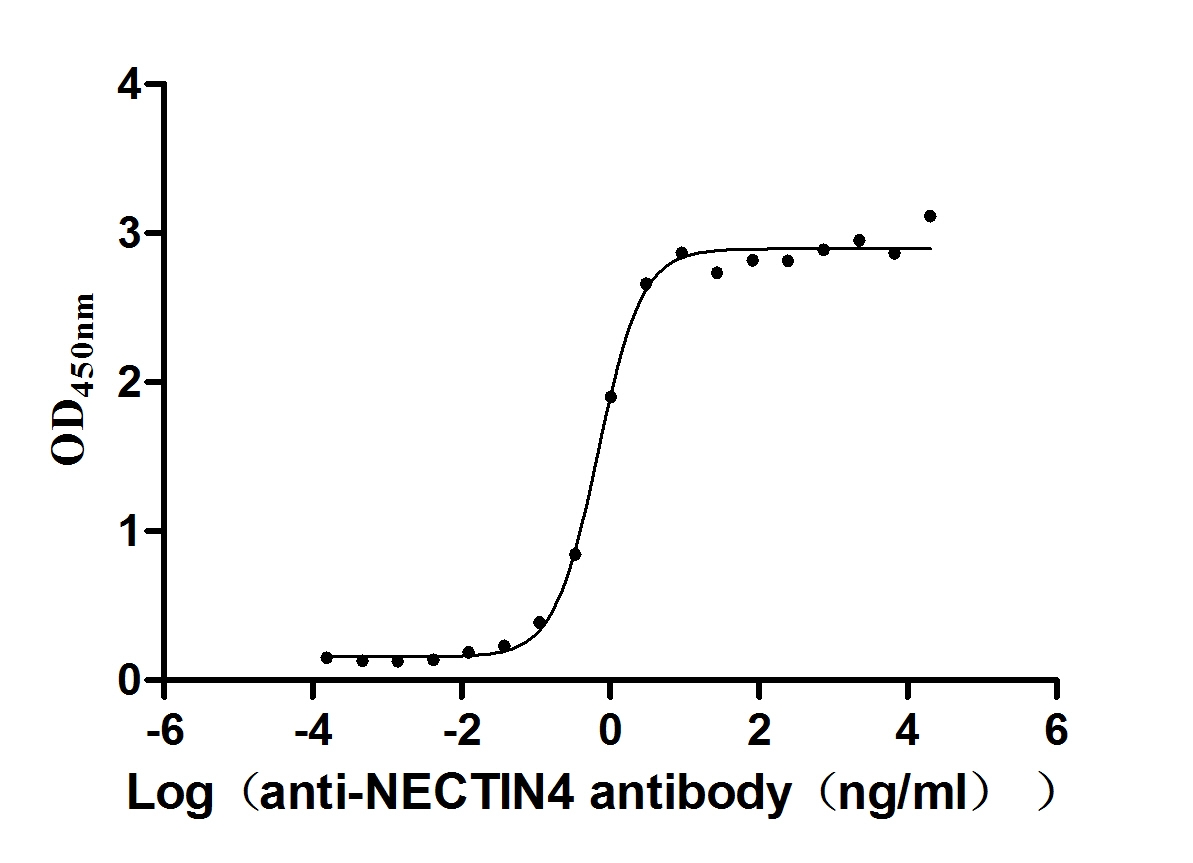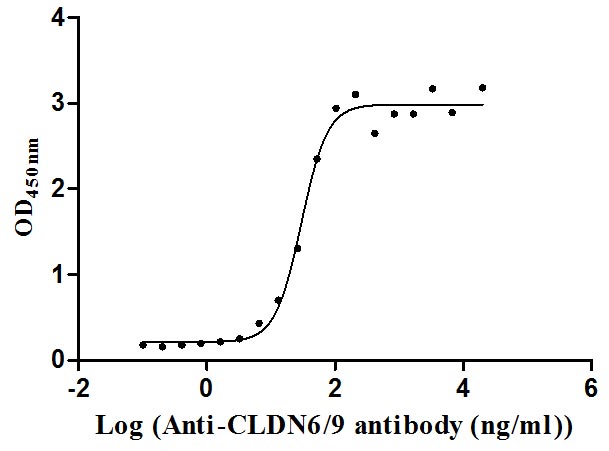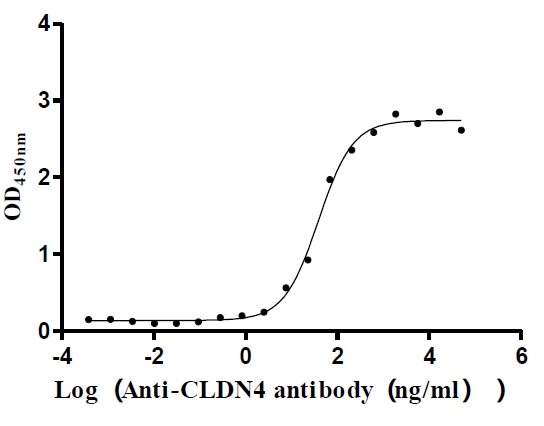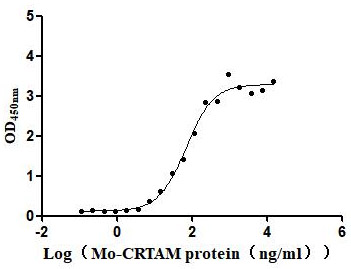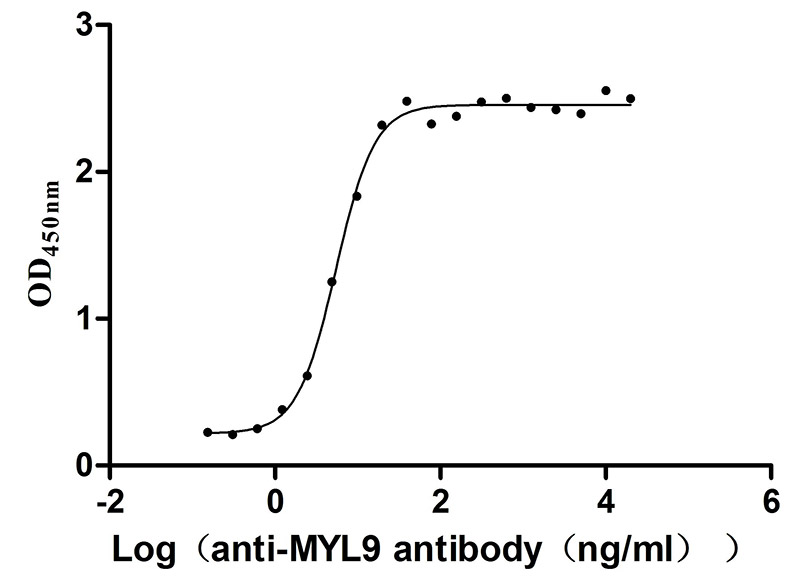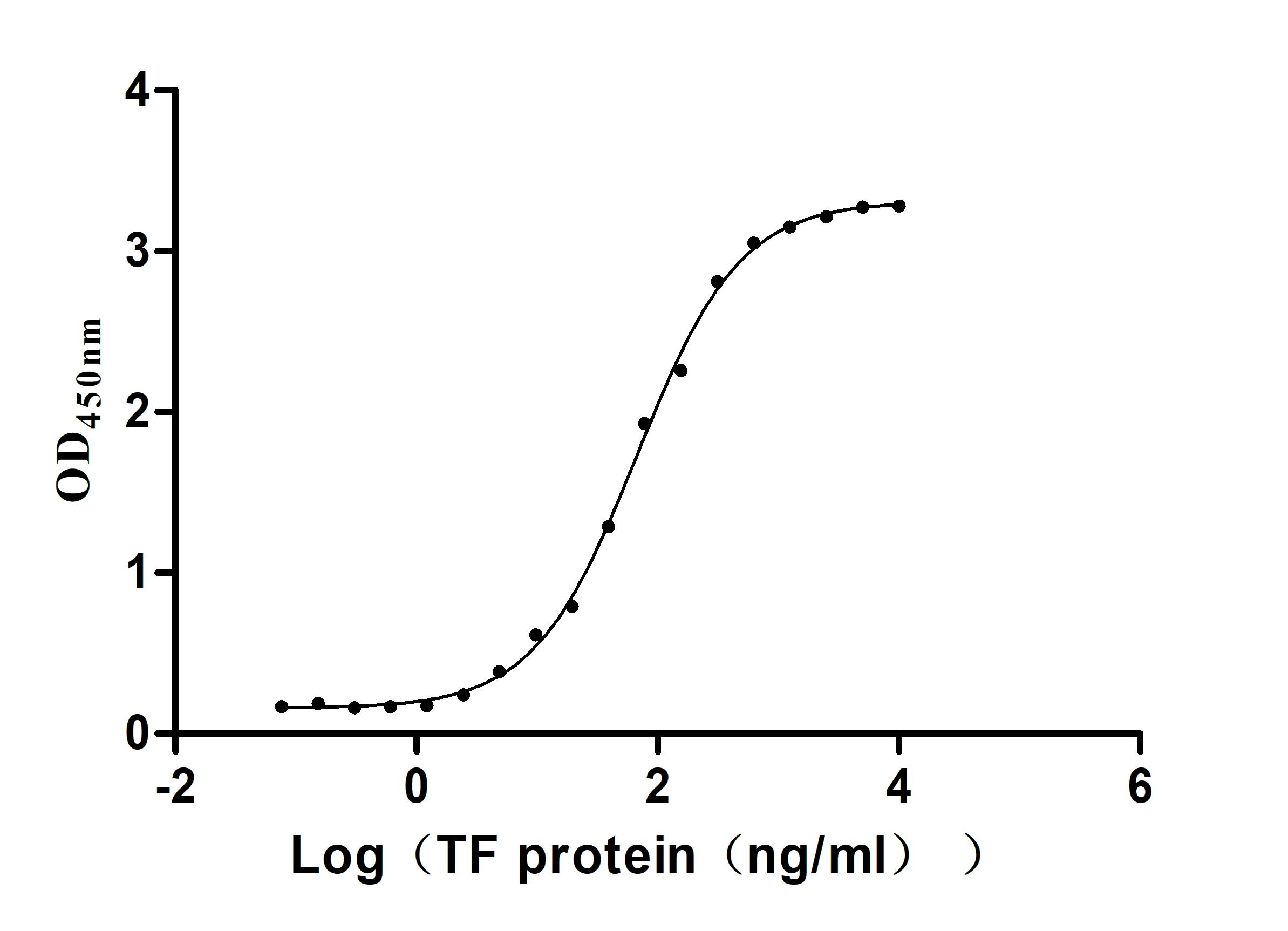Recombinant Human Lysophospholipid acyltransferase 5 (LPCAT3), partial
-
货号:CSB-YP744028HU
-
规格:
-
来源:Yeast
-
其他:
-
货号:CSB-EP744028HU
-
规格:
-
来源:E.coli
-
其他:
-
货号:CSB-EP744028HU-B
-
规格:
-
来源:E.coli
-
共轭:Avi-tag Biotinylated
E. coli biotin ligase (BirA) is highly specific in covalently attaching biotin to the 15 amino acid AviTag peptide. This recombinant protein was biotinylated in vivo by AviTag-BirA technology, which method is BriA catalyzes amide linkage between the biotin and the specific lysine of the AviTag.
-
其他:
-
货号:CSB-BP744028HU
-
规格:
-
来源:Baculovirus
-
其他:
-
货号:CSB-MP744028HU
-
规格:
-
来源:Mammalian cell
-
其他:
产品详情
-
纯度:>85% (SDS-PAGE)
-
基因名:LPCAT3
-
Uniprot No.:
-
别名:1-acylglycerophosphocholine O-acyltransferase; 1-acylglycerophosphoserine O-acyltransferase; LPCAT; Lpcat3; LPLAT 5; LPSAT; Lyso-PC acyltransferase 3; Lyso-PC acyltransferase; Lyso-PS acyltransferase; Lysophosphatidylcholine acyltransferase 3; Lysophosphatidylcholine acyltransferase; Lysophosphatidylserine acyltransferase; Lysophospholipid acyltransferase 5; MBOA5; MBOA5_HUMAN; Membrane-bound O-acyltransferase domain-containing protein 5; O-acyltransferase domain-containing protein 5
-
种属:Homo sapiens (Human)
-
蛋白长度:Partial
-
蛋白标签:Tag type will be determined during the manufacturing process.
The tag type will be determined during production process. If you have specified tag type, please tell us and we will develop the specified tag preferentially. -
产品提供形式:Lyophilized powder
Note: We will preferentially ship the format that we have in stock, however, if you have any special requirement for the format, please remark your requirement when placing the order, we will prepare according to your demand. -
复溶:We recommend that this vial be briefly centrifuged prior to opening to bring the contents to the bottom. Please reconstitute protein in deionized sterile water to a concentration of 0.1-1.0 mg/mL.We recommend to add 5-50% of glycerol (final concentration) and aliquot for long-term storage at -20℃/-80℃. Our default final concentration of glycerol is 50%. Customers could use it as reference.
-
储存条件:Store at -20°C/-80°C upon receipt, aliquoting is necessary for mutiple use. Avoid repeated freeze-thaw cycles.
-
保质期:The shelf life is related to many factors, storage state, buffer ingredients, storage temperature and the stability of the protein itself.
Generally, the shelf life of liquid form is 6 months at -20°C/-80°C. The shelf life of lyophilized form is 12 months at -20°C/-80°C. -
货期:Delivery time may differ from different purchasing way or location, please kindly consult your local distributors for specific delivery time.Note: All of our proteins are default shipped with normal blue ice packs, if you request to ship with dry ice, please communicate with us in advance and extra fees will be charged.
-
注意事项:Repeated freezing and thawing is not recommended. Store working aliquots at 4°C for up to one week.
-
Datasheet :Please contact us to get it.
相关产品
靶点详情
-
功能:Lysophospholipid O-acyltransferase (LPLAT) that catalyzes the reacylation step of the phospholipid remodeling process also known as the Lands cycle. Catalyzes transfer of the fatty acyl chain from fatty acyl-CoA to 1-acyl lysophospholipid to form various classes of phospholipids. Converts 1-acyl lysophosphatidylcholine (LPC) into phosphatidylcholine (PC) (LPCAT activity), 1-acyl lysophosphatidylserine (LPS) into phosphatidylserine (PS) (LPSAT activity) and 1-acyl lysophosphatidylethanolamine (LPE) into phosphatidylethanolamine (PE) (LPEAT activity). Favors polyunsaturated fatty acyl-CoAs as acyl donors compared to saturated fatty acyl-CoAs. Has higher activity for LPC acyl acceptors compared to LPEs and LPSs. Can also transfer the fatty acyl chain from fatty acyl-CoA to 1-O-alkyl lysophospholipid or 1-O-alkenyl lysophospholipid with lower efficiency. Acts as a major LPC O-acyltransferase in liver and intestine. As a component of the liver X receptor/NR1H3 or NR1H2 signaling pathway, mainly catalyzes the incorporation of arachidonate into PCs of endoplasmic reticulum (ER) membranes, increasing membrane dynamics and enabling triacylglycerols transfer to nascent very low-density lipoprotein (VLDL) particles. Promotes processing of sterol regulatory protein SREBF1 in hepatocytes, likely by facilitating the translocation of SREBF1-SCAP complex from ER to the Golgi apparatus. Participates in mechanisms by which the liver X receptor/NR1H3 or NR1H2 signaling pathway counteracts lipid-induced ER stress response and inflammation. Downregulates hepatic inflammation by limiting arachidonic acid availability for synthesis of inflammatory eicosanoids, such as prostaglandins. In enterocytes, acts as a component of a gut-brain feedback loop that coordinates dietary lipid absorption and food intake. Regulates the abundance of PCs containing linoleate and arachidonate in enterocyte membranes, enabling passive diffusion of fatty acids and cholesterol across the membrane for efficient chylomicron assembly. In the intestinal crypt, acts as a component of dietary-responsive phospholipid-cholesterol axis, regulating the biosynthesis of cholesterol and its mitogenic effects on intestinal stem cells.
-
基因功能参考文献:
- Regulation of LPCAT3 expression might be associated with atherosclerotic progression in humans. PMID: 28683445
- findings identify LPCAT3 as a direct PPARdelta target gene and suggest a novel function of PPARdelta in regulation of phospholipid metabolism through LPCAT3. PMID: 27913621
- Our findings suggest that LPCAT3 plays an important role in M1/M2-macrophage polarization, providing novel potential therapeutic targets for the regulation of immune and inflammatory disorders PMID: 25994902
- LPCAT3 a key contributor to the human macrophages inflammatory response. PMID: 23580142
- lysoPC acyltransferase 3 is a novel-signal-regulated enzyme that is centrally implicated in limiting free arachidonic acid levels in activated cells PMID: 20018618
- LPCAT3 is primarily responsible for hepatic LPCAT activity PMID: 18195019
- MBOAT5 and MBOAT7 in arachidonate recycling, thus regulating free arachidonic acid levels and leukotriene synthesis in neutrophils PMID: 18772128
- LPCAT3 is involved in phospholipids remodeling to achieve appropriate membrane lipid fatty acid composition. PMID: 18781350
- These results indicate that human MBOAT5 is a lysophospholipid acyltransferase acting preferentially on lysophosphatidylcholine, lysophosphatidylserine and lysophosphatidylethanolamine. PMID: 18782225
- characterization of LPCAT3; LPCAT3 expression in tissue culture increased phospholipids with relatively more saturated acyl chains; limiting LPCAT3 expression increased abundance of phospholipids with more unsaturated acyl chains PMID: 19351971
显示更多
收起更多
-
亚细胞定位:Endoplasmic reticulum membrane; Multi-pass membrane protein.
-
蛋白家族:Membrane-bound acyltransferase family
-
组织特异性:Highly expressed in liver, pancreas and adipose tissue. Very low expression in skeletal muscle and heart. Detected in neutrophils.
-
数据库链接:
HGNC: 30244
OMIM: 611950
KEGG: hsa:10162
STRING: 9606.ENSP00000261407
UniGene: Hs.655248
Most popular with customers
-
Recombinant Human Leukemia inhibitory factor (LIF) (Active)
Express system: Mammalian cell
Species: Homo sapiens (Human)
-
Recombinant Human Nectin-4 (NECTIN4), partial (Active)
Express system: Mammalian cell
Species: Homo sapiens (Human)
-
Recombinant Human Claudin-9 (CLDN9)-VLPs (Active)
Express system: Mammalian cell
Species: Homo sapiens (Human)
-
Recombinant Human Claudin-4 (CLDN4)-VLPs (Active)
Express system: Mammalian cell
Species: Homo sapiens (Human)
-
Recombinant Mouse Cell adhesion molecule 1 (Cadm1), partial (Active)
Express system: Mammalian cell
Species: Mus musculus (Mouse)
-
Recombinant Human Myosin regulatory light polypeptide 9 (MYL9) (Active)
Express system: Yeast
Species: Homo sapiens (Human)
-
Recombinant Human Serotransferrin(TF) (Active)
Express system: Mammalian cell
Species: Homo sapiens (Human)
-
Recombinant Human Dipeptidase 3(DPEP3), partial (Active)
Express system: Mammalian cell
Species: Homo sapiens (Human)



